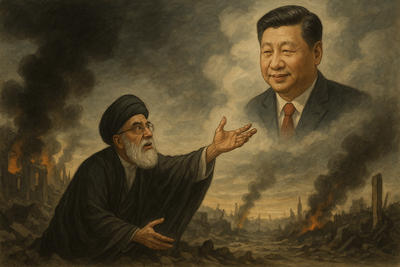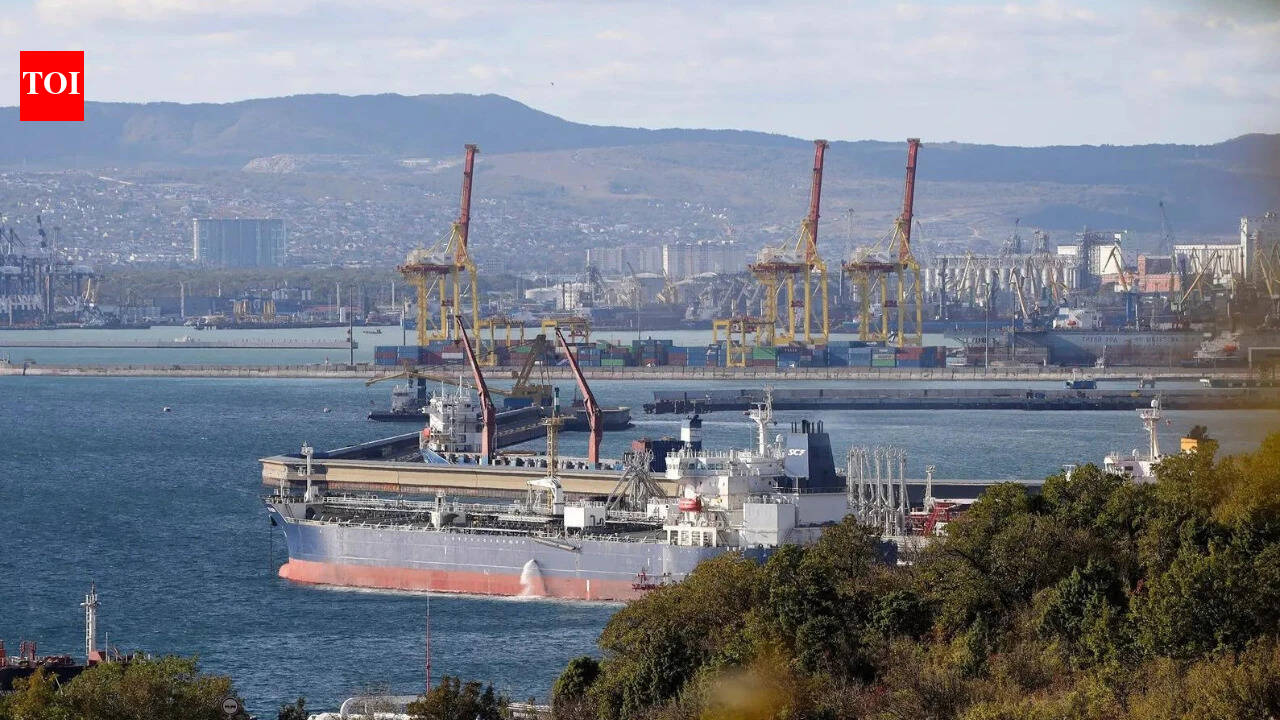Israel hammers Iran: Trump mulls bunker busters – will Xi rescue Ayatollah?

As Israel rains missiles on Iranian military and nuclear targets and President Donald Trump weighs direct US intervention with bunker-busting bombs, Iran’s Supreme Leader Ayatollah Ali Khamenei finds himself increasingly isolated. But the one power many hoped – or feared – might come to Tehran’s aid, China, has stayed conspicuously cautious.Not that China has totally abandoned Iran, it has drawn a red line: But only on paper. Chinese foreign minister Wang Yi called the Israeli strikes on Iran “unacceptable.” President Xi Jinping issued a condemnation through the Shanghai Cooperation Organization. China even offered rhetorical support for Iran’s “sovereignty and security.” But beyond the statements, one thing was conspicuously absent: Action.Chinese President Xi Jinping has condemned Israel’s assault, emphasized dialogue, and backed Iran’s sovereignty. Yet he has shown no signs of rushing to deliver weapons, military intelligence, or any other support that might change the battlefield calculus in Iran’s favor. “China may be offering economic relief and rhetorical support to Iran, but actual military intervention is not anywhere near the table yet,” Wen-Ti Sung, nonresident fellow at the Atlantic Council’s Global China Hub, told Bloomberg.Why it mattersIran is facing its most serious external threat since the 1979 revolution. Israel has killed over 600 Iranians, including top generals and nuclear scientists. Trump has demanded Iran’s “unconditional surrender” and is weighing military options. And yet, China – a supposed strategic partner – has stuck to statements and sidestepped commitments.The lack of meaningful action from Beijing signals two crucial realities:1. China’s support for Iran is driven more by economic self-interest and strategic restraint than ideological alignment.2. Beijing’s Middle East strategy is transactional and risk-averse, prioritizing energy security and economic ties over alliances.Between the lines: Rhetoric without riskBeijing’s pattern is clear. As in Ukraine, it prefers moral positioning to material involvement. “China may be offering economic relief and rhetorical support to Iran, but actual military intervention is not anywhere near the table yet,” Wen-Ti Sung, a nonresident fellow with the Atlantic Council’s Global China Hub, told Bloomberg.

The calculus is both ideological and pragmatic. Xi’s doctrine of non-interference-rooted in Deng-era realism-has become a trademark of China’s global posture. That principle allows Beijing to project neutrality in foreign conflicts, appeal to the Global South, and avoid the pitfalls of overextension that have ensnared the US for decades.In this case, the risks are exceptionally high. Iran is being directly targeted not just by Israel but potentially by an emboldened United States. President Donald Trump has floated the possibility of using “bunker buster” bombs to strike Iran’s deeply buried nuclear sites. Open conflict with a US-backed adversary in the Middle East is a trap China has no interest in walking into.“China does not want to risk getting entrapped by Iran’s war with an Israel that has the Trump administration behind it,” Sung explained.

Zoom in
- Oil calculus: Over 90% of Iran’s oil exports go to China, mostly via sanction-evading methods using yuan and shadow fleets.
- Yet Iran accounts for less than 1% of China’s total trade. It’s significant for Tehran, not Beijing.
- “If Iranian oil disappears, China has other options,” noted Fitch Ratings. “OPEC+ spare capacity could fill the gap.” Beijing’s diversified energy strategy is designed precisely for this scenario-an unstable supplier becomes expendable.
- Energy risk: If the conflict disrupts the Strait of Hormuz, the fallout for China could be massive. Nearly half of its crude oil passes through the narrow waterway.
- Weapon supply: Iran needs advanced air defense and fighter jets to match Israel. But China has not signed a new arms deal with Iran since 2005. US sanctions have disincentivized such transactions.
- Public mood: Some Chinese nationalist voices want Beijing to back Iran militarily. But most state messaging focuses on stability, and social media commentary is mixed.
- “If Islamic countries such as Pakistan intervene, it will indirectly drag China in, because the weapons they use are from China,” Pan Guang of the Shanghai Academy of Social Sciences told the South China Morning Post.
The big pictureChina and Iran have deepened ties in recent years. Xi oversaw Iran’s entry into BRICS and the SCO. They signed a 25-year strategic deal in 2021, reportedly worth $400 billion in investments. But implementation has been slow, and sanctions have chilled enthusiasm among Chinese firms.Iran is a “strategic partner” for Beijing only insofar as it fits broader geopolitical aims – challenging US dominance, securing oil, and building influence. Iran is not central to China’s Middle East blueprint.

Meanwhile, China has kept relations warm with Israel, Saudi Arabia, and the UAE. When Beijing brokered a diplomatic thaw between Tehran and Riyadh in 2023, it celebrated the moment but quickly stepped back as new conflicts erupted.“China’s strategy in the Middle East is to stay on good terms with everyone to maximize its economic gains and geopolitical influence,” Neil Thomas of the Asia Society Policy Institute told the Bloomberg.And if conflict between the US and Iran escalates, Beijing may even benefit. Greater US involvement in the Middle East would “distract Washington from strategic competition with China,” Bloomberg analysts noted.What they’re saying
- “Xi has expressed willingness to help. But what can he or China do?” asked Zhiqun Zhu, professor at Bucknell University. “Mediating is a tall order that’s hard to reach without cooperation of other key players, especially the United States.”
- “Further escalation of tensions in the Middle East is not in the interests of any party,” said China’s foreign ministry, urging countries with “special influence on Israel” – a nod to the US – to play a constructive role.
- “If Trump takes some action on the Israel-Iran issue, he can divert attention from other troublesome issues,” said Pan Guang, implying that China sees US threats as partly political theater.
What’s nextIf the conflict deepens and Trump orders US strikes, China will likely double down on diplomacy, perhaps via the UN Security Council, where it can flex soft power without real costs.But don’t expect Beijing to:Deploy military assets
- Sell weapons to Tehran
- Mediate alone between Israel and Iran
That’s not how Xi operates. China has neither the appetite nor the leverage to act as a wartime ally. And with global oil prices, Chinese economic recovery, and domestic woes in play – including youth unemployment and a real estate slump – the risks of deeper entanglement far outweigh the potential gains.

The bottom lineXi Jinping is not coming to the Ayatollah’s rescue. China may speak out against Israeli strikes and back Iran in the abstract. But when it comes to real power – arms, troops, strategic shielding – Tehran is on its own.Xi’s priority remains crystal clear: avoid chaos, avoid sanctions, and avoid war.(With inputs from agencies)





